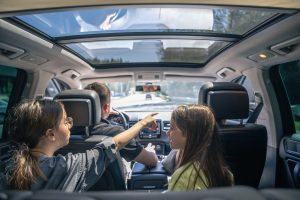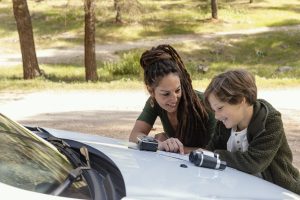Contents
Online education’s popularity is growing fast. COVID-19 helped this growth. Virtual learning platforms, homeschooling, and hybrid models are all contributing to this trend. Some families have adopted a unique method known as roadschooling.

Roadschooling is a form of homeschooling where education happens while traveling. Families with practice of roadschooling live in recreational vehicles (RVs) or travel for long periods. This method gives students the opportunity to learn about different cultures, locations, and environments. This form of homeschooling turns the world into a classroom. Roadschooling offers adaptability in learning and lifestyle.
Roadschooling Laws
Roadschooling families comply with homeschooling laws in the country or state they travel through. These laws differ by region. Each state has its own regulations in the United States. Check these regulations here.
Examples of roadschooling
|
Parents, Take Note
The study “Homeschooling: The Research” was conducted by Brian D. Ray. The study found homeschool students are regularly engaged in social and educational activities outside their homes and with people other than their nuclear-family members. They are commonly involved in activities such as field trips, scouting, 4-H, political drives, church ministry, sports teams, and community volunteer work
|
Families turn their travel experiences into learning opportunities. Here are examples of how families practice roadschooling.
RV Living
Families who live full-time in RVs mix education with life on the road. Children’s lessons are connected with destinations, such as studying ecosystems in national parks or learning U.S. history at historic sites. The RV lifestyle offers practical learning, letting children explore new places every day.

Seasonal Travel
Some families use roadschooling during specific times of the year, like summer or winter, and stay at home the rest of the time. Parents and children enjoy off-season travel but follow a regular learning schedule. Seasonal travel gives kids new places to explore, and lessons are based on their destinations. Parents focus on subjects like geography, history, or science during these trips. It’s a way for families to mix regular homeschooling with the fun of traveling.
International Roadschooling
Families who practice international roadschooling travel abroad. Parents show to the children different cultures, languages, and landscapes. Education goes past traditional books. Families include real-world experiences like visiting ancient ruins, learning new languages, and exploring local customs. This type of roadschooling offers a global view, giving children direct knowledge of different places.
Volunteer Roadschooling
Families add volunteering to their roadschooling. Children learn through service projects while traveling. These projects are helping at animal shelters, working on environmental projects, or supporting local communities. Volunteering teaches children empathy, responsibility, and teamwork.
Eco-Roadschooling
Families doing eco-roadschooling focus on environmental education during their travels. Parents and children visit places like national parks, nature reserves, and eco-friendly farms. Children learn about conservation, sustainability, and nature. Students get experiences like watching wildlife or planting trees. These activities teach children about caring for the environment. It helps kids see why protecting the planet is important.
Benefits of the Roadschooling Style
This way of learning has many benefits. Kids learn through real experiences, and families have freedom in where and how they teach. Here are five main benefits of roadschooling.

Real-World Learning
Roadschooling allows children to learn from the world around them. Students visit historical sites, museums, and natural landmarks. These trips make lessons more memorable.
Cultural Experience
Children learn about different cultures and traditions while traveling. This broadens kids’ understanding of the world. It helps students appreciate diversity and different ways of life.
Adaptability
Roadschooling gives families the freedom to adjust the learning process. Parents and children choose what to study based on their location. This makes education more personalized.
Family Bonding
Traveling and learning together strengthens family ties. Parents and children share unique experiences along the way. This creates lasting memories and deepens connections.
Practical Skills Development
Children learn valuable life skills through hands-on experiences. Students develop problem-solving, time management, and adaptability. These skills prepare them for real-world challenges.
Is Roadschooling Right for My Family?
Roadschooling lets families travel while teaching their kids on the road. It’s great for children who enjoy new experiences and want to learn from the world around them. Find out if roadschooling works for the family here.
Roadschooling with Legacy Online School
“My daughter likes it especially all the learning materials are available, if she doesn’t understand something, the teacher answers promptly in the chat room. The opportunity to do more bias on the subjects that the child likes more. All training on the standard even can go ahead of the regular school and my daughter has time to do her favorite activities. And we have time to travel and study remotely”
Parent’s review, SCHOOL IN

Legacy Online School offers an excellent program for families who choose roadschooling. The school is accredited by the Western Association of Schools and Colleges (WASC). This accreditation confirms the education provided meets high standards and is recognized globally.
Legacy Online School gives a supportive environment. Certified teachers guide students through each lesson. Legacy Online School provides everything needed to make roadschooling effective.
Enroll your child today to start your roadschooling journey!











